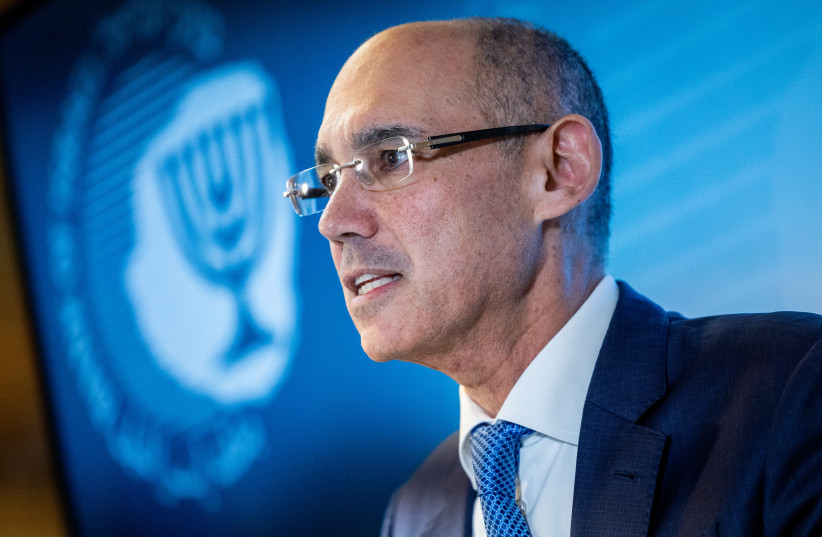The independence of the Bank of Israel is one of the key ingredients of Israel’s financial success. The decisions that the bank makes are not based on populist assessments or tactics used by politicians. Instead, the bank’s monetary committee thinks about the future sustainability of Israel’s economy and ways to ensure its continued growth.
This is important to keep in mind as threats to undermine the bank were heard this week from members of Prime Minister Benjamin Netanyahu’s coalition, including Foreign Minister Eli Cohen, who asked that the government take steps to prevent a further rise in Israel’s interest rates.
In a tweet sent on Monday evening, the foreign minister requested that Finance Minister Bezalel Smotrich “draw up an outline with the Governor of the Bank of Israel to stop interest rate increases. Against the background of the moderation of inflation, there was no justification for raising the interest rate today.”
Cohen issued his call after the bank raised interest rates by another 0.5% on Monday to 4.25%.
On the one hand, it is clear that it is important for average Israelis who have mortgages that interest rates not skyrocket. We need to maintain a healthy economy with low inflation, affordable interest rates, a thriving stock market and low unemployment. These have been features of Israel’s success over the last decades, much to the credit of Netanyahu who understood the importance of the liberalization of Israel’s economy.

On the other hand, we cannot ignore what the bank is trying to do – battle inflation and keep Israel’s economy growing.
The populist threats to the Bank of Israel need to stop – and Netanyahu has addressed the issue.
“Under my leadership, the Bank of Israel law that guarantees the independence of the monetary committee headed by the governor in determining the interest rate was passed. Nothing will change it,” he said in a statement.
Stop talking about the bank
A day later, in another statement, Netanyahu called on all Likud MKs to stop talking about the bank. “The Bank of Israel’s independence is a central tenet of the financial policy that the prime minister is leading, and nothing will change this,” his office said.
Smotrich also responded, calling calls to politicize the bank “populist.”
“The independence of Israel’s central bank is fundamental for our strong and innovative economy,” the finance minister wrote. “As a government, we will deliver a budget that invests heavily in infrastructure for economic growth, as well as a package of assistance for those truly in need.”
More problems than just interest rates
The rise in interest rates is not the only problem. The larger problem is the overall atmosphere that this new government has brought with it to the Knesset.
It comes as economists and business owners warn that the judicial reforms – now being advanced in the Knesset – will undermine and weaken Israel’s economy. While the economy saw 6.5% growth in 2022, the bank has already corrected predictions for 2023 and brought the number down to below 3%.

The clouds looming over Israel’s economy are more complex than just this dispute. Netanyahu met with Bank of Israel Governor Amir Yaron back in January and discussed the state of the economy. At the time, Yaron presented the prime minister with an economic strategic plan that was formulated by the bank, which also sent the Finance Ministry a number of concerns that rose because of threats to Israel’s credit rating.
The judicial reform could harm Israel’s credit rating – and Standard and Poor’s, as well as other financial institutions, have already warned about the reform plans.
Nevertheless, despite concerns expressed abroad by rating agencies and experts, as well as the potential flight of hi-tech companies and the moving of money out of the country, the government has plowed ahead with the reforms, ignoring most of the concerns of protesters.
Once one taboo is broken – that of judicial reforms – it is possible that other taboos will also be harmed, such as the integrity and independence of Israel’s central bank. Netanyahu must continue to make sure that populism does not affect the Bank of Israel.
